Built For This: IMPACT 2025
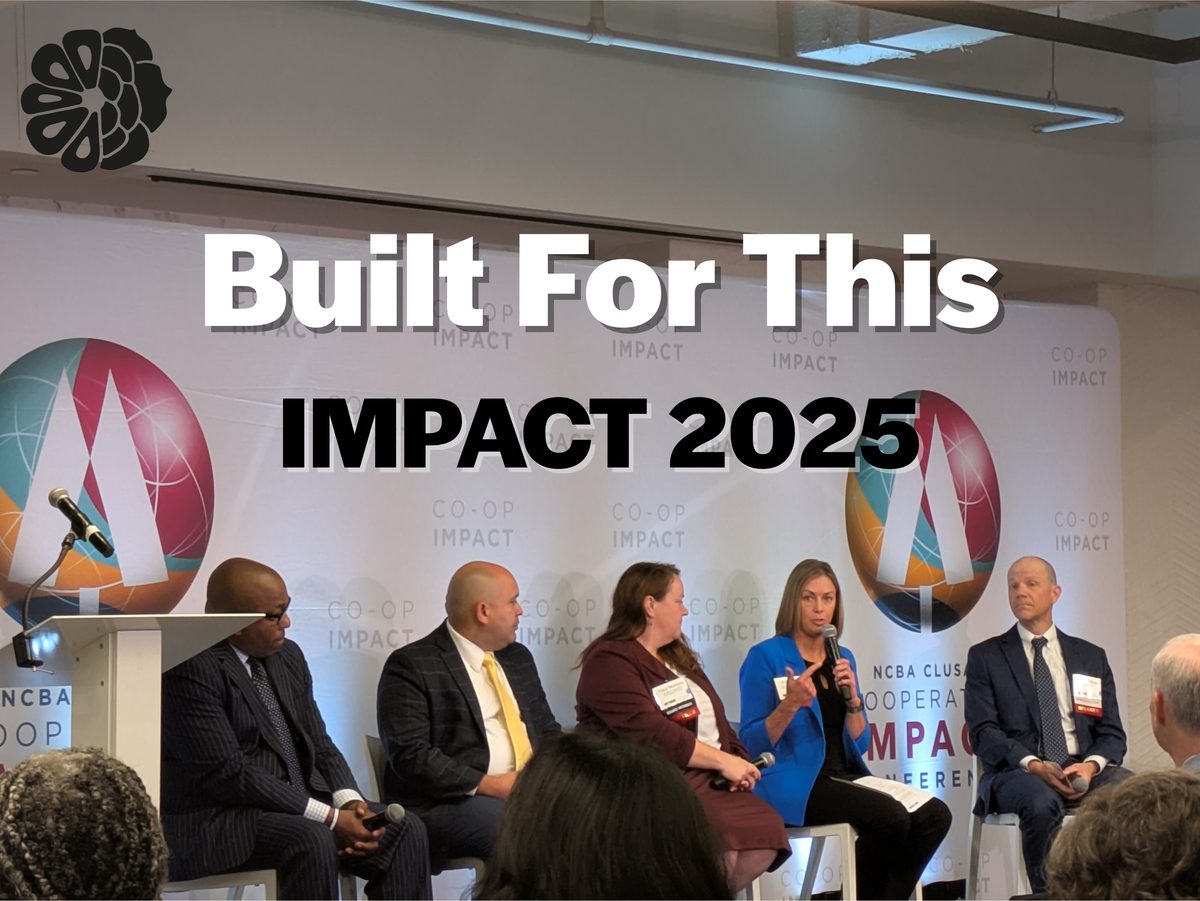
"This is what co-ops are built for"
This year’s Cooperative IMPACT Conference, hosted by the National Cooperative Business Association CLUSA International (NCBA CLUSA), had a number of references to the current moment in America. Dr. Keri Jacobs put it most succinctly during the opening panel “From Challenge to Action: Advancing Co-ops in a Shifting Landscape”. Cooperatives were created to address a market failure, and they were built to respond to structural crises.
Dr. Jacobs, the Executive Director of the Graduate Institute of Cooperative Leadership at the University of Missouri went on to highlight the importance of strong board governance practices and empowering the executive and professional staff to put their cooperative in the best place to succeed. She also noted the importance of meeting challenges through solidarity and collective action, especially with other cooperatives.
Tracy McIntyre, the Executive Director of the Montana Cooperative Development Center, discussed bringing together co-ops across sectors and making sure they work together. “That’s when our voice gets very powerful.” McIntyre also highlighted the importance of cooperative education, noting that many young people may not know the history that went into creating the rural electric co-ops and their unique importance.
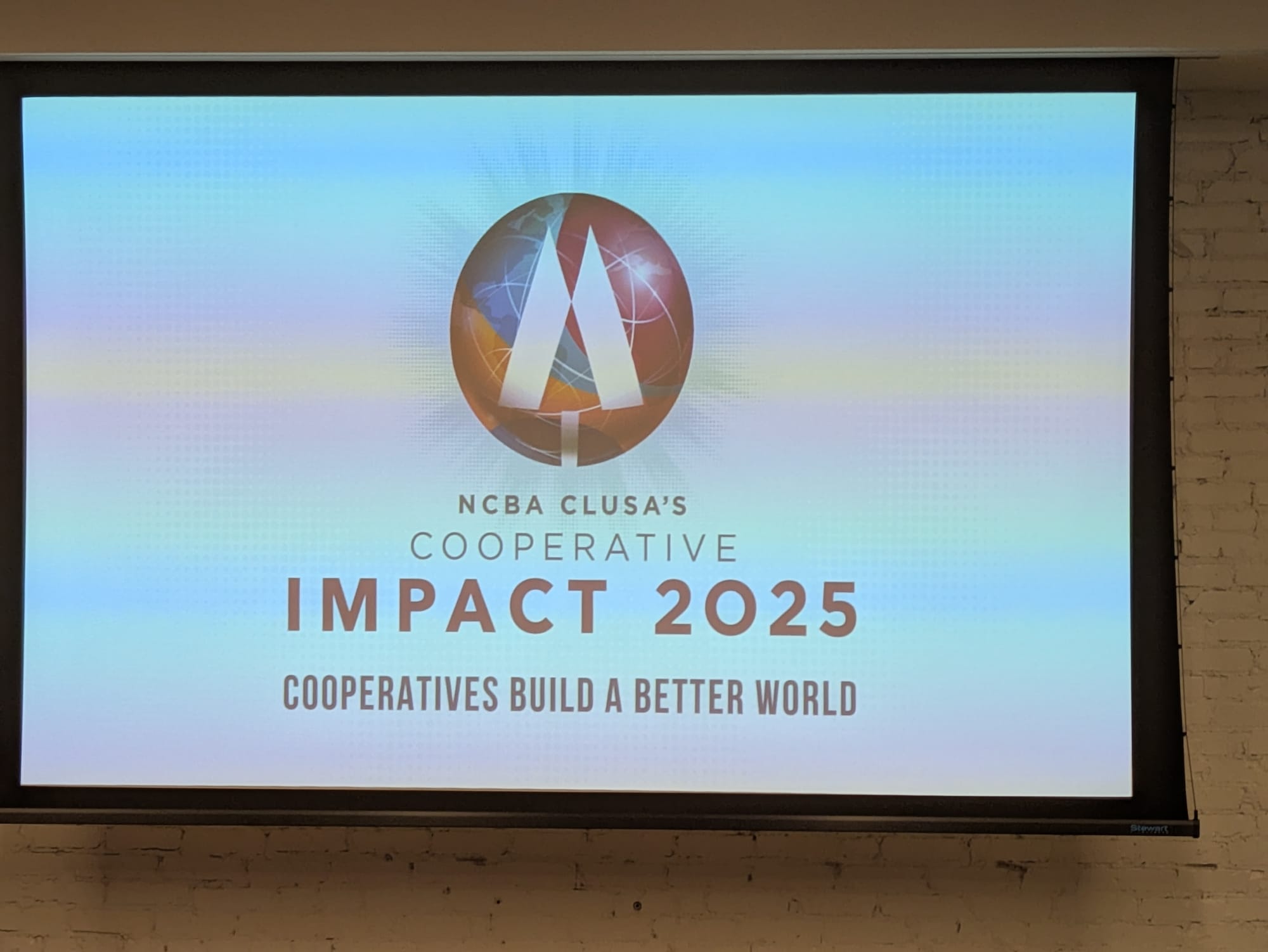
The next generation of cooperative leaders were highlighted by John Holdsclaw, President of Rochdale Capital. The Cooperative Leaders & Scholars 2025 cohort members were in attendance at the conference to learn and participate.
The two-day conference took place in Washington DC on October 8th and 9th at a unique moment for the city and the country. The IMPACT conference has been held annually by NCBA CLUSA since 2017. The 2025 version was held during the United Nations designated International Year of Cooperatives. The conference put an emphasis on communications this year, with programming from cooperative journalists, highlighting advocacy efforts through storytelling and hosting the first ever Year of Co-ops Film Festival. NCBA CLUSA invited cooperatives to submit unique video stories and the best were honored at the conference.
A highlight at the beginning of Day 2 was the presentation of the Co-op IMPACT Champion Award. The awards were presented to Representative David Valadao of California, who did not attend, and Senator Amy Klobuchar of Minnesota who accepted her award in-person. Senator Klobuchar spoke about her cooperative bona fides, saying she understood the importance of co-ops to uplift communities and give everyone an opportunity to succeed. She was proud of Minnesota’s leadership in cooperatives, and her ability on the Senate Agriculture Committee to help make sure federal policy can benefit cooperative farmers and ranchers.
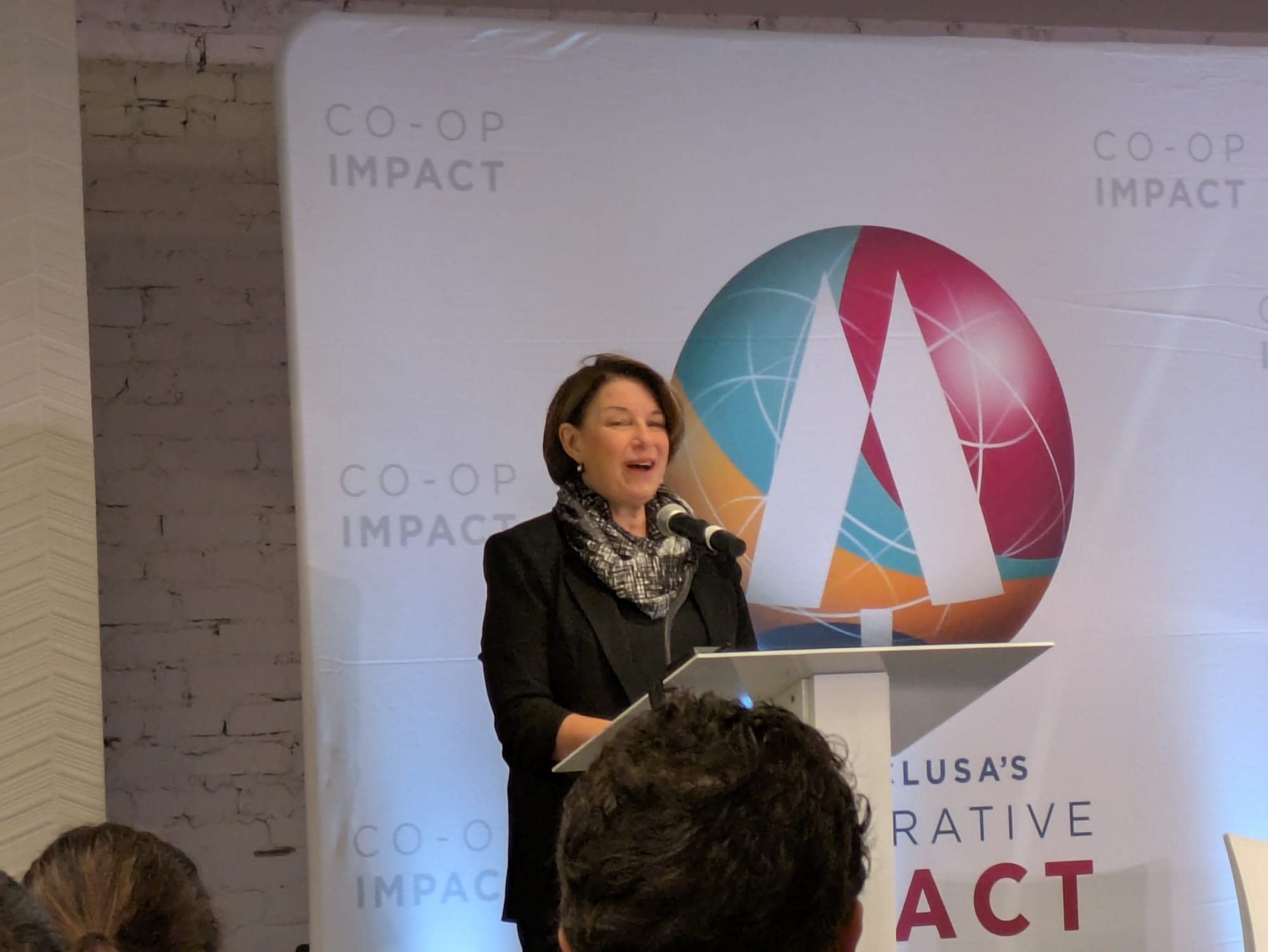
With the federal government shutdown only one week in during the conference, Senator Klobuchar said she hoped for quick resolution but also expressed support for healthcare subsidies. She spoke about the legality of tariffs enacted by the White House and their impact on businesses around the country. She thanked the room full of cooperators for their work and left to a standing ovation.
A powerful panel titled Stories of Resilience: Advancing Cooperative Principles to Drive Economic Opportunity and Prosperity featured emotional storytelling from Cooperative Coffees General Manager Ed Canty. He spoke about sourcing coffee beans from farms internationally where he witnessed people who had been on opposite sides of armed conflict able to work together. The story resonated in a room of people acutely aware of rising mistrust and political divisions within America.
A session called Co-ops In the News told the story of two different cooperative journalism entities and how they were created. Maddie Poore, Director of Development for The 51st, told the story of how the Washington DC news website DCist was twice shuttered and laid off its staff. Former colleagues discussed starting their own news site, excited by the possibility of a worker-led newsroom. Jasper Wang of Defector Media explained how their employee-owned company came from the fallout of Deadspin’s sale to a private equity firm. Both panelists highlighted the importance of newsrooms that aren’t owned by billionaires or big business interests.
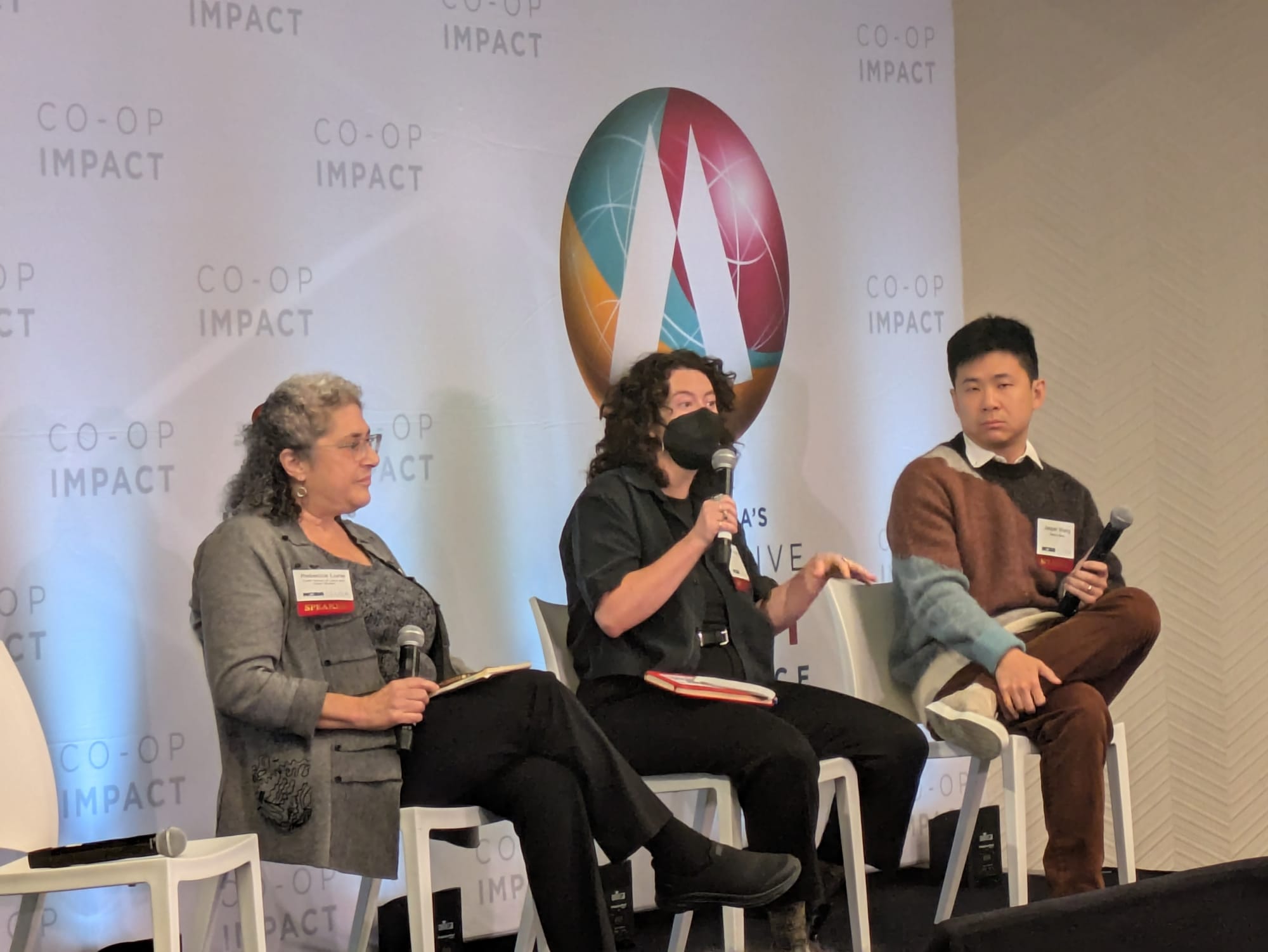
Lastly there were the four inductees to the Cooperative Hall of Fame. A panel led by NCBA CLUSA President Doug O’Brien discussed the contributions of the 2025 class. Lori Capouch worked for the North Dakota Association of Rural Electric Cooperatives and supported other rural cooperative enterprises. Estelle Witherspoon was honored for her contributions dating back to the Civil Rights movement including as a founding member of the Freedom Quilting Bee. J. Tom Webb established the Master of Management: Co-operatives and Credit Unions program at Saint Mary’s University that has been a leader in training cooperators. Finally there was Randy Lee who helped start the Puget Consumer Cooperative (PCC), now the nation’s largest consumer-owned grocer.
With the pall of uncertainty hanging over so many facets of the cooperative movement, this year’s IMPACT conference still managed to create feelings of hope and solidarity. Novel cooperative funding concepts were discussed and examples of cross-sectional partnerships were lifted up. In an age where attention is a commodity, the focus on storytelling felt important. To paraphrase Dr. Jacobs once again, these moments of uncertainty and change are exactly what co-ops were built to meet.

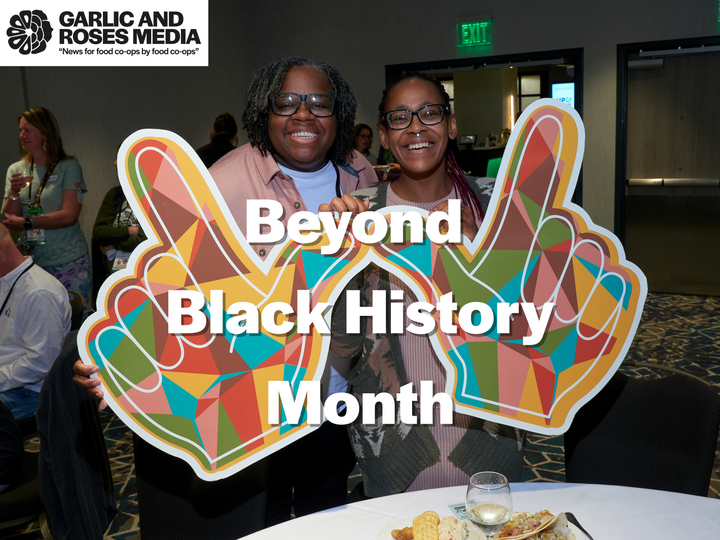
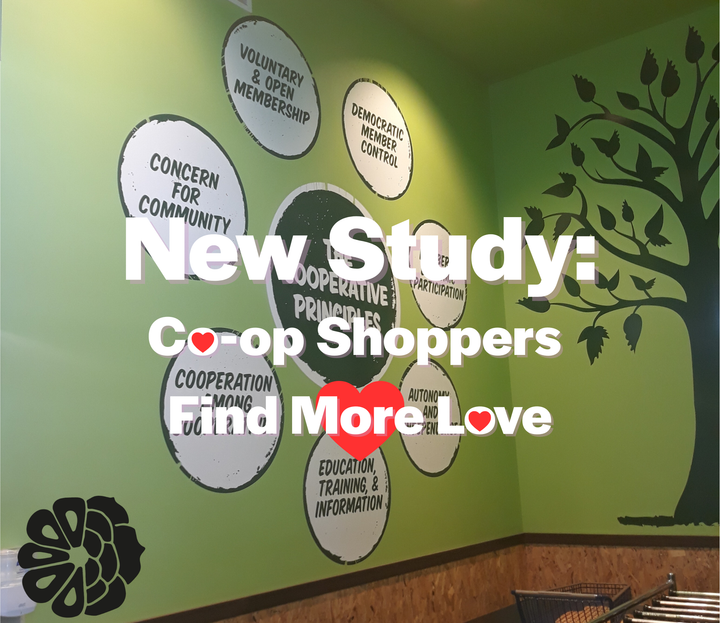

Comments ()